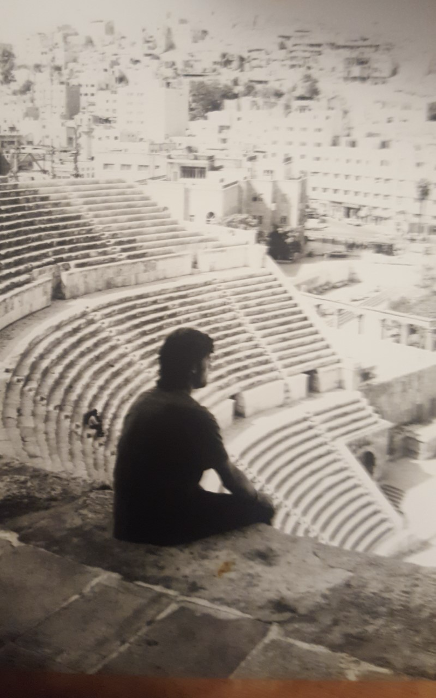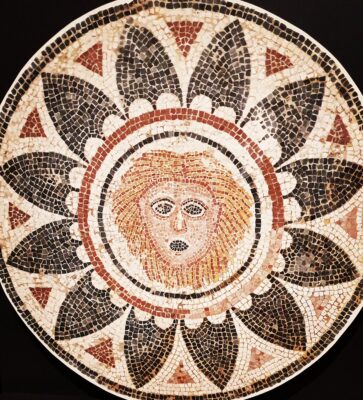Dear PESA Agora,
I would like to address the experience of fear in education – for that, I propose a philosophy of fear. I am writing this letter to make a case for regular correspondence with Agora on the subject and contribution of the philosophy of fear.
I am not happy with how education systems are characterised in the name of fear. I am not happy that children fear school and teachers and learning. My unhappiness is not that there is fear, but that these things are feared in certain ways, ways that I think limit the possibilities of fear for education.
In my letters, I intend to address the persistent and systemic misunderstanding and mistreatment of fear in education. There is a failure in education to recognise the beauty and complexity and excitement of fear. I think this failure needs revealing, needs to be made more present. I think there is work to do in the philosophy of education that can take up a philosophy of fear.
In my letters, I will introduce a philosophy of fear as a theoretical and applied approach to enduring aims and tensions in education. The philosophy of fear reveals to the philosophy of education new configurations to make sense of and to dwell in, and challenges the perceived failures of the philosophy of education.
I offer these letters because, as a god of fear, I have something to offer education. What I offer is not so much lessons to learn about fear, or about fear as a pedagogical device, although certainly there are lots of lessons and devices. I am also not offering solutions for education systems to immunise populations against fear, although I would like to explore the dangers and limitations of regarding fear as something that can be overcome by and through enlightenment – enlightenment has a very curious relationship to fear, one that reveals certain educational truths and realities that limit and exploit the meaning and experience of fear.
I am interested here in what fear has to offer the philosophy of education because of the tendency, at least in some philosophical work, to consider fear as something to avoid, something to mitigate against, something to reveal for its, in all too simple and common terms, ‘badness.’ The study of education seems to fear fear. The study of education has for too long used fear to justify practices in education systems that produce ‘the ignorant’ – and here I want to make it clear that the idea of ignorance as the source of fear has had remarkable success in controlling populations, in exploiting worlds, and in maintaining truths.
The ideas that fear is a threat to utility, that well-being is harmed by fear, that fear is not rational.… These ideas are all chains. And they are chains that bind education to certain exploitative trajectories. I, Phobos, god of fear, want to write these letters to remind the readers of Agora of this simple fact: Humans are afraid, and fear is a part of human life. A life without fear is not a life. Fear can both reveal and break the educational chains that tether life.
Let me remind you of what monotheistic religions have made the modern mind forget: the old gods were not only symbols, mythological figures, powers. They were protectors of certain aspects of the world, of nature, and of life. Godly protectors who thought the living to keep those particular realms sacred, be it the ocean, an animal, a practice, a particular mountain or forest, love, childbirth, herding, hunting and farming or anything else part of life. So, I make myself known in educational philosophy as the protector of fear to remind you of its holiness. This kind of fear, I might say, is not fear, but a particular kind of relationship to what happens to you as you respond to the world and each other.
In my column, I will make my case for a philosophy of fear through various devices. I am particularly keen to engage with writers who have had something substantial or different to say that speaks to the meaning and experience of fear. Camus on tragedy and Thoreau on uncertainty, for instance. I also want to explore some familiar but often diminished or demeaned traditions that are ready to hand … for instance, the tales that are told to children, and stories of dystopian futures in an infinite universe.
On that note, let me remind you of how you used to be drawn to fear, to the excitement of uncertainty, of not knowing if what you do will be accepted by your peers or elders, of not knowing if you will get hurt or hurt others (ever so slightly). I recall the fear of children’s play. Creative play. It is a space that can be safe and safe, because it is not real and real. As safe and not safe, real and not real, play comes alive with tension and excitement. Playing with sticks, fencing with your friends, you may hurt yourself and others. You will be afraid. Playing an ordinary game of hide and seek, you will be afraid to be found and afraid to be not found. When such play works for you, when your fear and safety are in a delicate balance, you will find that it opens the world for you.
Fear tickles the imagination
This kind of play sets the tone, is the key, for these letters and their engagement with the philosophy of fear. In that way of introducing, living if you will, the very notion that I will speak to you about, through speaking about it. I will not speak of fear to you, without you feeling it.
Fear-fully and play-fully yours, Phobos.



